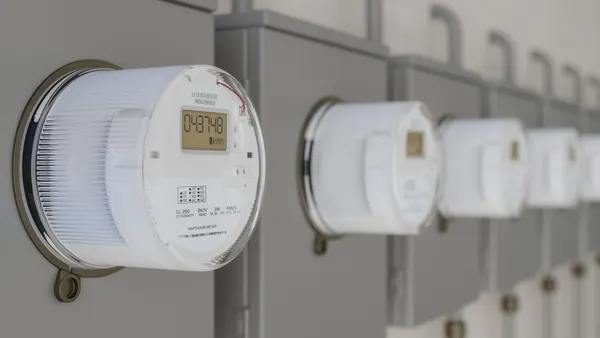Dive Brief:
- Sen. Ron Wyden, D-Ore., and more than two dozen other lawmakers introduced legislation on Thursday to "overhaul" the federal energy tax code by consolidating 44 energy incentives into three technology-neutral provisions intended to promote energy independence and a low-carbon economy.
- The measure calls for a production tax credit (PTC) or an investment tax credit (ITC) for resources that are least 35% cleaner than average. Zero carbon facilities would be eligible for a maximum $0.024/kWh PTC or a 30% ITC while fossil fuel tax incentives would be repealed.
- There is broad support for the legislation from the clean energy industry, including groups advocating for solar, wind, energy storage and electric vehicles. But the bill lacks Republicans sponsors and the Competitive Enterprise Institute (CEI) calls it a wealth transfer to the detriment of fossil fuel resource-rich states.
Dive Insight:
Democrats in the U.S. Senate want to streamline portions of the tax code relevant to renewable energy, to "level the playing field," as one co-sponsor put it. But according to a non-profit libertarian think tank, the bill is biased against fossil fuels.
"This bill claims to be 'technology neutral.' It is not. It rigs the market against fossil fuel-based technologies," CEI Senior Fellow Marlo Lewis told Utility Dive in a statement.
The bill allows power plants that emit at least 35% less carbon than the current nationwide average to qualify for incentives, which increase in size for cleaner plants.
"It's doubtful any coal power plant could qualify for credits, which are a form of subsidy. Gas might gain some additional market advantage vis-à-vis coal, but the lion's share of credits would go to solar, wind, hydro and nuclear," Lewis said. "Further stacking the decks against fossil electricity will, of course, also transfer wealth from fossil-rich states like Montana to hydro-rich states like Oregon."
Bill supporters, of course, see it differently.
"This bill is an important step toward cleaning up the tax code to ensure that American taxpayers no longer subsidize energy sectors that fail to reduce or eliminate pollution," Sen. Ben Cardin, D-Md., said in a statement.
To encourage cleaner transportation, the proposal also includes a tax credit for fuels at least 25% cleaner than average, with a maximum credit of $1/gallon available for fuels with zero carbon emissions. A per-manufacturer cap on the tax credit for electric vehicles would be eliminated, and a credit for fuel cell vehicles would be extended.
To encourage efficiency, the bill includes a performance-based tax credit for energy efficient homes and tax deduction for energy efficient commercial buildings.
"Congress has the ability to level the playing field so that all energy providers have an equal opportunity to build on their successes and cut pollution," Cardin said.
Several advanced energy groups are supporting the bill, including: American Council on Renewable Energy, Alliance to Save Energy, American Wind Energy Association, American Public Power Association, Energy Storage Association, Plug In America and Solar Energy Industries Association.













